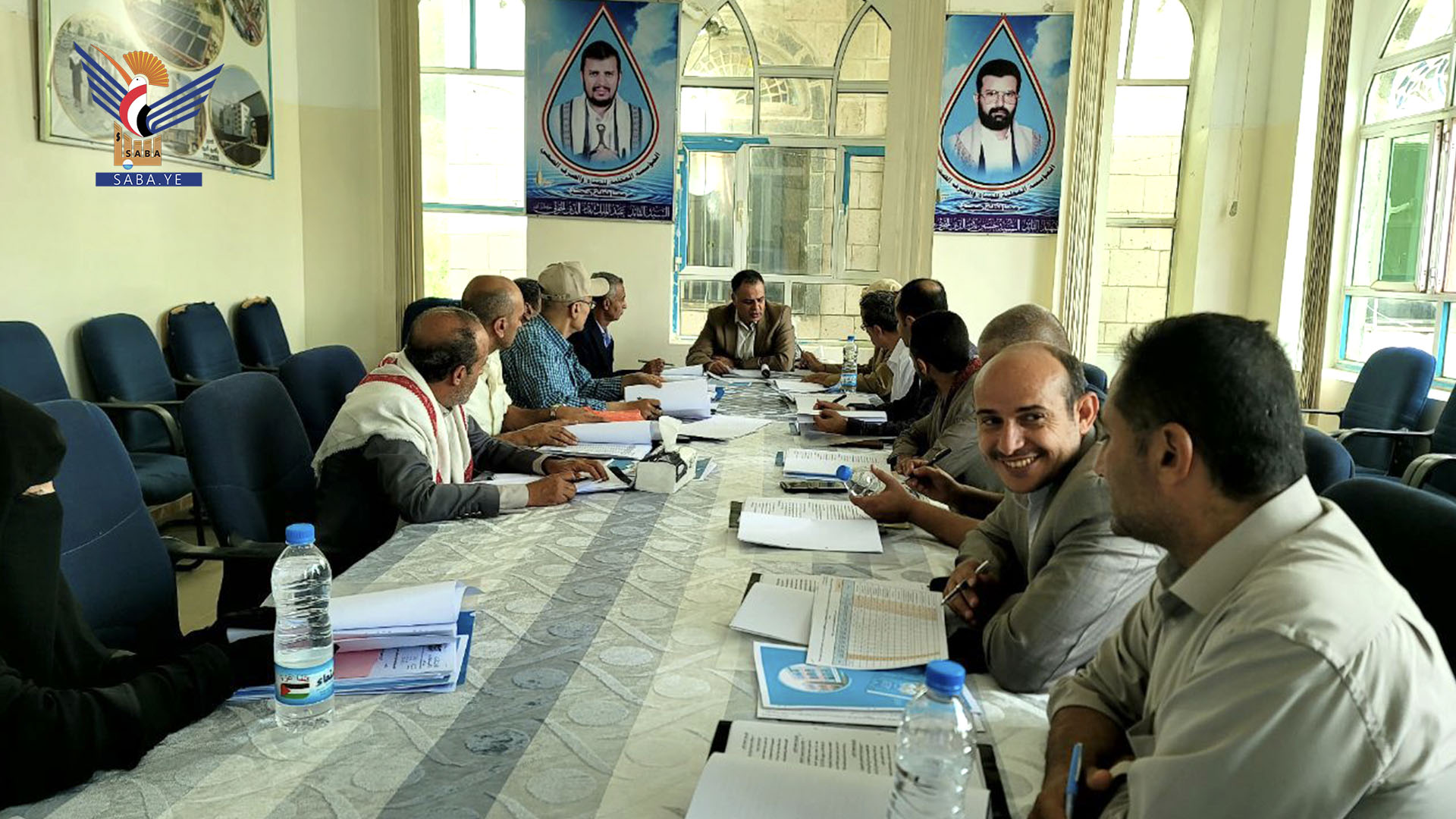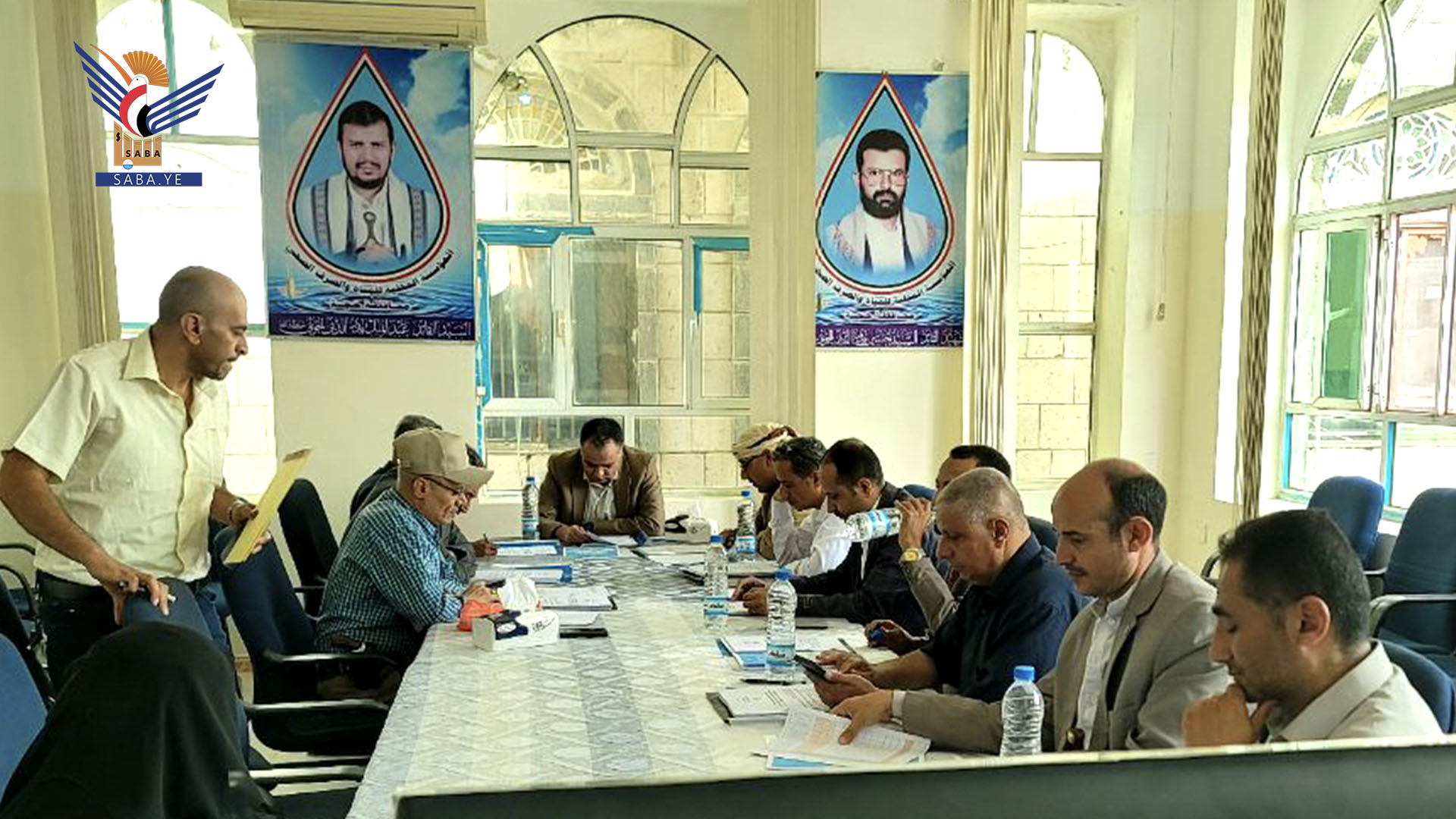
Hajjah - Saba:
The Board of Directors of the Water and Sanitation Corporation in Hajjah governorate, led by governor Hilal Al-Sufi, on Tuesday approved the corporation's final accounts for the year 2023.
The decision came during a comprehensive meeting that also outlined future projects and addressed key operational and financial challenges.
During the session, attended by Hajjah undersecretary Mohammed al-Qadhi, the board conducted a thorough review of the corporation's performance report for the past year (1446 AH).
Discussions highlighted encountered obstacles and the measures implemented to overcome them. Detailed statistics were presented, offering insights into subscriber numbers, water sold, and collection rates.
The board also examined outstanding debts across household, governmental, and commercial sectors, alongside operational expenses and new connection figures.
Looking ahead, the board delved into the sub-unit's strategic planning for projects and activities slated for 1447 AH. This included an overview of ongoing and forthcoming projects, encompassing the corporation's financial, administrative, and technical endeavors, as well as ongoing studies and designs aimed at enhancing water and sanitation services.
The meeting also addressed the results of monitoring and evaluating the implementation progress of the current phase plan (September 2024 to June 2025) and the emergency operational plan for 1446 AH.
Updates on the implementation of recommendations from the House of Representatives and the Government of Change and Construction regarding Hajjah’s central water supply issues were also a key part of the agenda.
Financial matters received significant attention, particularly concerning the corporation's financial reinforcements for electricity expenses held at the Central Bank.
The board underscored the imperative for sustained follow-up with the Ministry of Finance on this vital matter. Discussions also covered outstanding debts from the Republican Hospital Authority and the General Authority for Endowments Office.
Furthermore, the corporation's initiative to proceed with government sequestration for utilized and leased sites—including those for solar energy and sanitation plants—was brought to the forefront.
In a move set to impact rural development, the Board of Directors approved the addition of 10 Yemeni Riyals per water unit as a rural development fee, responding to a proposal from the Ministry of Electricity, Energy, and Water.
Additionally, the board sanctioned the establishment of a new corporation office in the Bani Qais district and greenlit an evaluation of large rural water projects with a view to their eventual handover to the corporation.
The Board of Directors of the Water and Sanitation Corporation in Hajjah governorate, led by governor Hilal Al-Sufi, on Tuesday approved the corporation's final accounts for the year 2023.
The decision came during a comprehensive meeting that also outlined future projects and addressed key operational and financial challenges.
During the session, attended by Hajjah undersecretary Mohammed al-Qadhi, the board conducted a thorough review of the corporation's performance report for the past year (1446 AH).
Discussions highlighted encountered obstacles and the measures implemented to overcome them. Detailed statistics were presented, offering insights into subscriber numbers, water sold, and collection rates.
The board also examined outstanding debts across household, governmental, and commercial sectors, alongside operational expenses and new connection figures.
Looking ahead, the board delved into the sub-unit's strategic planning for projects and activities slated for 1447 AH. This included an overview of ongoing and forthcoming projects, encompassing the corporation's financial, administrative, and technical endeavors, as well as ongoing studies and designs aimed at enhancing water and sanitation services.
The meeting also addressed the results of monitoring and evaluating the implementation progress of the current phase plan (September 2024 to June 2025) and the emergency operational plan for 1446 AH.
Updates on the implementation of recommendations from the House of Representatives and the Government of Change and Construction regarding Hajjah’s central water supply issues were also a key part of the agenda.
Financial matters received significant attention, particularly concerning the corporation's financial reinforcements for electricity expenses held at the Central Bank.
The board underscored the imperative for sustained follow-up with the Ministry of Finance on this vital matter. Discussions also covered outstanding debts from the Republican Hospital Authority and the General Authority for Endowments Office.
Furthermore, the corporation's initiative to proceed with government sequestration for utilized and leased sites—including those for solar energy and sanitation plants—was brought to the forefront.
In a move set to impact rural development, the Board of Directors approved the addition of 10 Yemeni Riyals per water unit as a rural development fee, responding to a proposal from the Ministry of Electricity, Energy, and Water.
Additionally, the board sanctioned the establishment of a new corporation office in the Bani Qais district and greenlit an evaluation of large rural water projects with a view to their eventual handover to the corporation.
